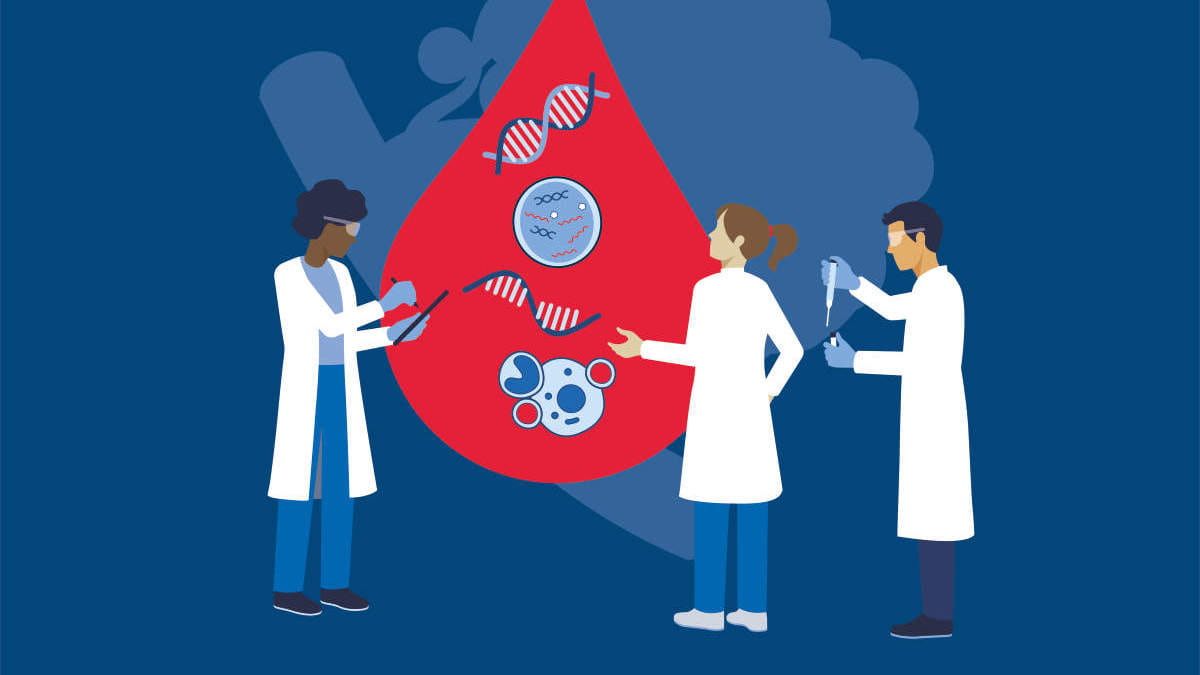
Latest liquid biopsy news, updates and success stories
Innovation for progress
Comprehensive Liquid Biopsy Workflow: From Sample to Insight
Dive deeper into liquid biopsy resources
Explore our Cancer Research Hub
Accelerate your journey to insights and help conquer cancer
FAQs to further your liquid biopsy knowledge
What is a liquid biopsy?
A quick, non-invasive procedure that limits the need for surgical biopsy. It allows biomarkers for diseases such as cancer to be discovered in biofluids such as blood and urine, allowing for better disease detection and management. We offer a comprehensive portfolio of solutions in the field of liquid biopsy solutions covering the most important analytes: circulating tumor cells, exosomes and circulating cell-free nucleic acids.
What are the advantages and challenges of liquid biopsy?
Liquid biopsies can be useful when a tissue sample is limited or hard to reach and if regular monitoring is needed. The main challenges include detecting a low amount of analytes in a high background and lack of standardization. To overcome these, we have developed a comprehensive portfolio of liquid biopsy solutions to meet your changing needs. Our PAXgene technology allows reliable sample collection and stabilization. We also offer optimized sample preparation kits for isolating ccfDNA, ccfRNA, exosomes and CTCs from various biofluids. For NGS-based cfDNA analysis, explore our QIAseq panels. We also offer predesigned or custom arrays and panels for PCR-based analysis. For data analysis, check out CLC Genomics Workbench.
What solutions do you offer to standardize sample processing?
We offer specific solutions for collection, stabilization and isolation of exosomes, ccfDNA and ccfRNA or CTCs that reduce background and stabilize signals of interest. Our PAXgene, RNeasy and DNeasy technologies maintain superior sample quality for sensitive downstream applications such as qPCR and NGS – giving you relevant results and actionable insights.
How do I get results that are relevant for cancer research?
You need test systems that identify and measure specific biomarkers of interest relevant for the type of cancer. Using LNA-enhanced solutions and dedicated control systems in your research provides superior sensitivity and specificity with greater repeatability and reproducibility in qPCR and NGS – giving relevant results and actionable insights that work together from sample prep and screening through to validation and functional analysis will ease and accelerate the path to biomarker discoveries.
Can I isolate more than one analyte from a single plasma sample?
The QIAamp ccfDNA/RNA Kit offers co-isolation of ccfDNA and ccfRNA from the same plasma sample, providing excellent yield and quality of both analytes in the same eluate. This allows you to analyze both DNA and RNA mutations in the same liquid biopsy sample and facilitates the discovery of low-frequency tumor mutations.

